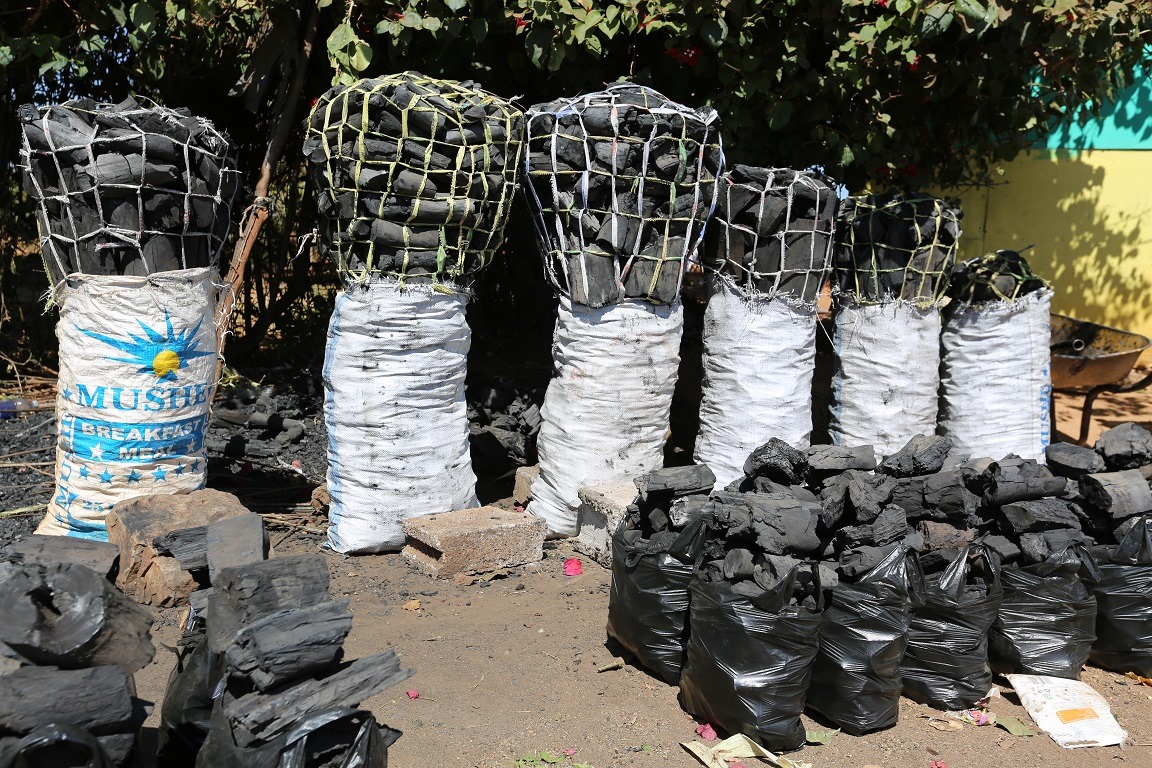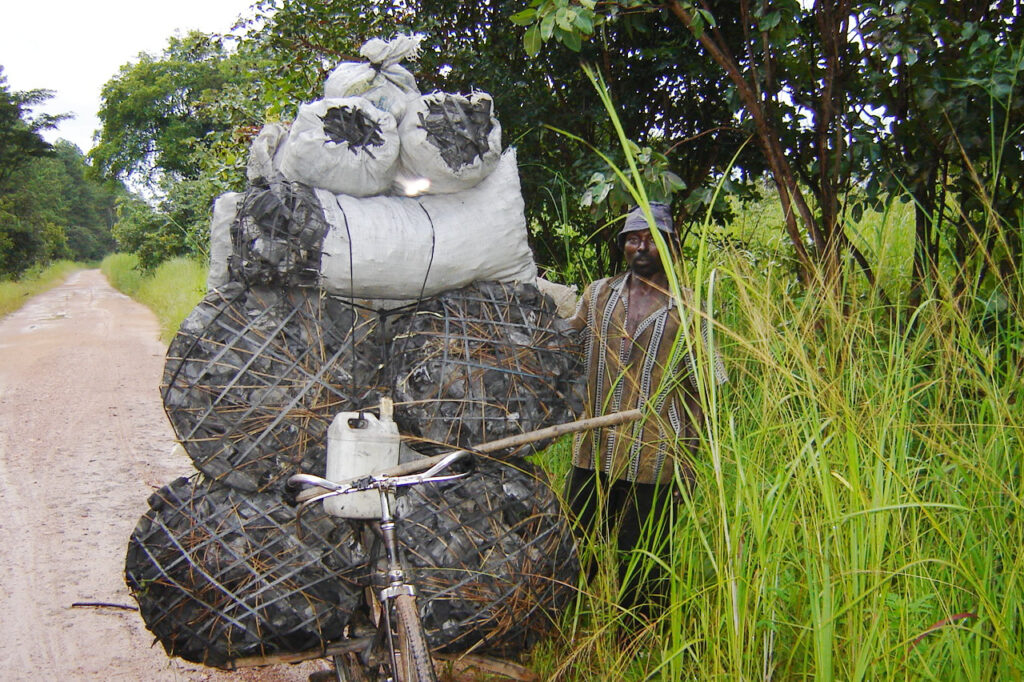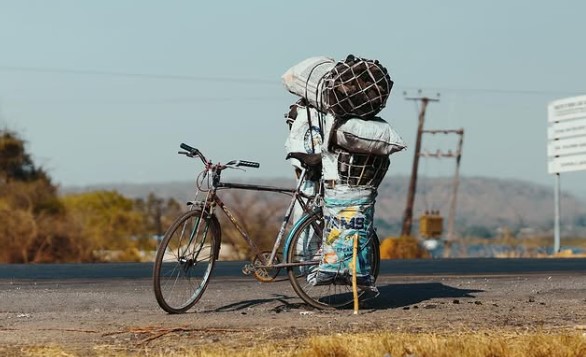Zambia’s ongoing battle with deforestation has been in the news lately, especially its connection to climate change. You might have heard that Zambia has periodically banned charcoal licenses to try and stop people from cutting down trees. But despite these efforts, the problem persists. In April 2024, the government even banned charcoal permits in Central and Southern provinces, two regions hit hard by deforestation. But why is this such a big deal? And what can we do about it? Let’s dive in.
How Does Charcoal Contribute to Climate Change?
Charcoal might seem like a simple, everyday fuel, but its impact on the environment is anything but small. Trees are like nature’s vacuum cleaners—they suck up carbon dioxide (CO₂) from the atmosphere and store it. But when trees are cut down and burned for charcoal, all that stored CO₂ is released back into the air. This adds to the greenhouse gases trapping heat in our atmosphere, which drives global warming and makes climate change worse.
In Zambia, charcoal is a major source of energy for cooking and heating, especially in urban areas where electricity is expensive or unreliable. But the cost to the environment is huge. Every tree cut down for charcoal is a step backward in the fight against climate change.

Which Trees Are Being Cut Down?
Not all trees are created equal when it comes to charcoal production. In Zambia, the miombo woodlands are a prime target. These woodlands are home to tree species like:
- Julbernardia paniculata (mutondo)
- Julbernardia globiflora (mupasa, kamponi)
- Brachystegia spiciformis (zebrawood or msasa)
These trees are preferred because they produce high-energy charcoal. Another favorite is the Faidherbia albida (musangu), which is also valued for its properties. But here’s the catch: these trees take decades to grow. For example, a musangu tree needs about 30 years to reach full maturity. When they’re cut down and not replaced, they’re slowly disappearing from our landscapes.
The Danger of Losing These Trees
The loss of these trees isn’t just about charcoal. Miombo woodlands are biodiversity hotspots, home to countless plant and animal species. They also play a critical role in regulating water cycles and preventing soil erosion. When these trees are gone, the land becomes less fertile, water sources dry up, and wildlife loses its habitat. It’s a domino effect that impacts everyone—farmers, wildlife, and future generations.
What’s Being Done About Deforestation in Zambia?
The good news is that Zambia isn’t sitting idle. There are several reforestation projects underway to combat deforestation. For example:
- Government Initiatives: The Zambian government has launched programs to promote tree planting and sustainable land management. However, these efforts often lack the resources and consistency needed to make a lasting impact.
- NGOs and Community Projects: Organizations like Green Gold Social are stepping up to fill the gap. They’re working with local communities to plant trees, restore degraded land, and raise awareness about the importance of forests.
- Private Sector Involvement: Some companies are investing in sustainable forestry and agroforestry projects, which combine tree planting with agriculture to improve food security and restore ecosystems.
But here’s the thing: while these efforts are commendable, they’re not enough. Zambia needs a sustainable forest management system that ensures trees are replaced faster than they’re cut down. This means more funding, better policies, and a collective effort from everyone—government, businesses, and communities.
What’s Green Gold Social Doing?
At Green Gold Social, we’re on a mission to restore Zambia’s natural landscapes. Our reforestation initiative focuses on planting native trees in areas affected by deforestation, especially those hit hard by charcoal production and firewood harvesting. Here’s how we’re making a difference:
- Seed Collection: We organize community hikes to collect seeds from native trees. So far, we’ve gathered over 20,000 seeds! These seeds are nurtured in community-run nurseries until they’re ready for planting.
- Tree Planting Campaigns: During the rainy season, we mobilize communities to plant seedlings in deforested areas. Our goal is to replace every tree that’s been cut down.
- Education and Awareness: We hold workshops to teach people about the importance of reforestation and sustainable land management. Knowledge is power, and we believe that informed communities are key to long-term change.
- Collaboration with Local Leaders: We work closely with local chiefs and community leaders to gain support for our projects. Their involvement helps us reach more people and organize training sessions on agroforestry and climate resilience.

Why Reforestation Matters
Reforestation isn’t just about planting trees—it’s about restoring ecosystems, improving soil health, and supporting local agriculture. Trees help retain water in the soil, which is crucial for farming in drought-prone areas like Zambia. They also absorb CO₂, helping to mitigate climate change. By planting native trees, we’re not just fighting deforestation; we’re building a greener, more sustainable future for Zambia.
How You Can Help
We can’t do this alone. Reforestation is a team effort, and we need your support! Here’s how you can get involved:
- Volunteer: Join us on our seed collection hikes or tree planting campaigns. Every pair of hands makes a difference.
- Donate: Your contributions help us buy tools, seeds, and other resources needed for our projects.
- Spread the Word: Share our mission with your friends and family. The more people know about the issue, the more we can achieve together.
Final Thoughts
Deforestation is a complex problem, but it’s not insurmountable. With the right strategies and collective action, we can turn the tide. At Green Gold Social, we’re committed to restoring Zambia’s forests, one tree at a time. But we need your help to make it happen. Together, we can create a greener, healthier future for Zambia—and for the planet.

Featured image credit: Prudence Phiri


Linda Phiri
The work you’re doing is so amazing. I’ll definitely be on the lookout for your next seed-gathering hike.
Hope Mkunte
Thank you Linda, this is encouraging